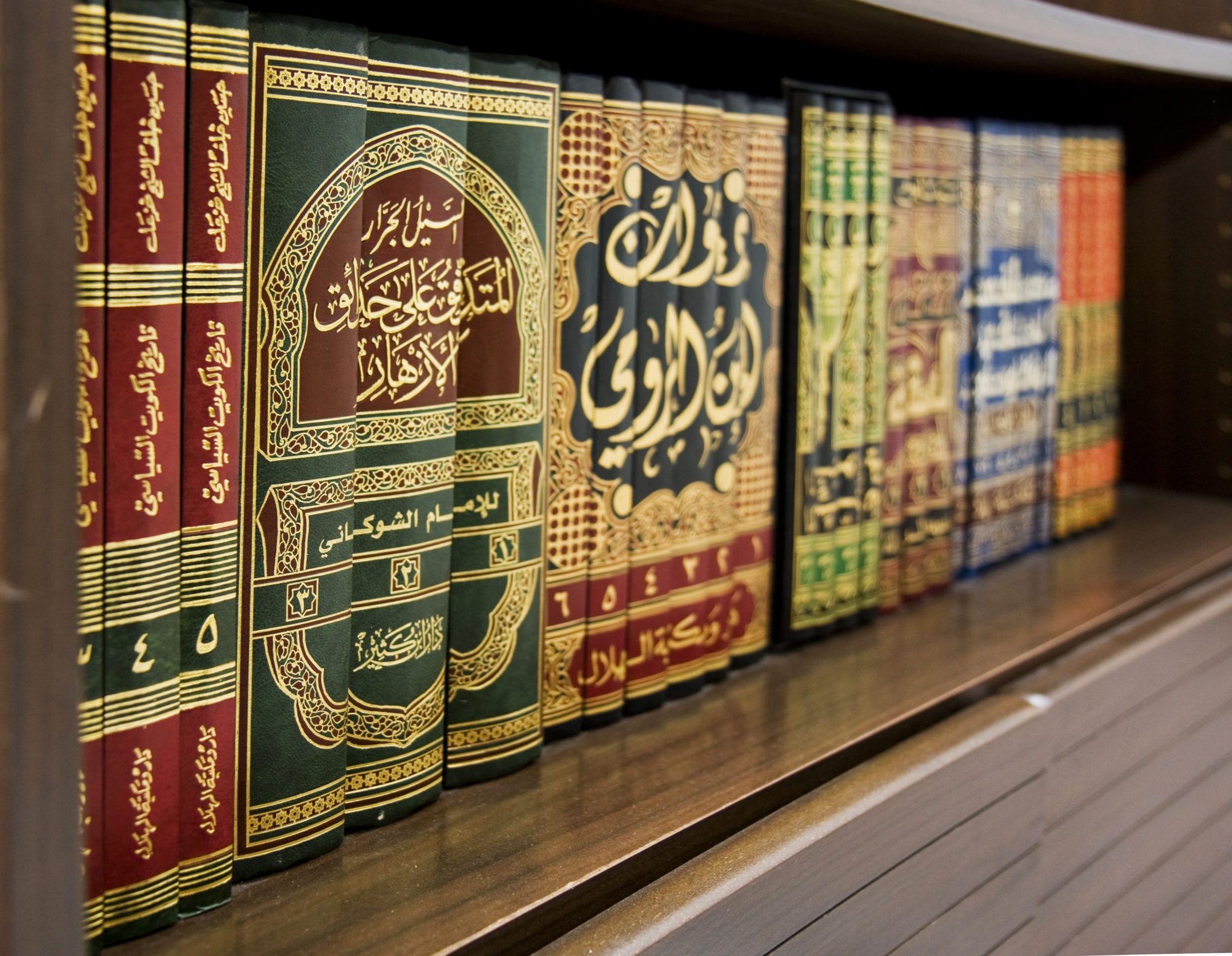hadith
5 Ḥadīths on the importance of Family
In this age of individualism, it is often easy to forget the rights of the family. Many people live self-obsessed lives, oblivious of their duties to their parents, siblings, aunts, uncles, cousins, and extended families.
To help revive the Sunnah of caring for one’s family, here are 5 Ḥadīth on the importance of family in Islam. Special Thanks to Abu Amina Elias (Justin Parrot) for his amazing website from which I sourced these Ḥadīths. All these Ḥadīth have been graded authentic by scholars of Ḥadīth. More details are available on the source website.
1. Part of his final advice
Anas reported that the Messenger of Allah (s) said in his illness before he passed away, “Your family relations! Your family relations!” (Ṣaḥīḥ Ibn Ḥibbān 463)
So important are the rights of the family in Islam that the Prophet (s) mentioned it during his final illness. The Prophet (s) only advised regarding the most crucial matters during his final illness. The matters he emphasized during his final illness include monotheism, Salah, hygiene, and family. This raises the rights of family members to be among the most important matters in our religion.
2. Help them financially
A man asked the Prophet (s), “What act of charity is best?” The Prophet (s) said, “One given to an estranged relative.” (Musnad Aḥmad 15022 )
If a distant relative has become estranged or tries to break ties, the Islamic thing to do is to try and reconnect with them. To emphasize this, the Prophet (s) gave preference to charity towards family over others, especially towards estranged family members who may be too proud to ask for help. Charity here does not refer only to wealth but includes all acts of kindness. The Prophet (s) said, “Every act of goodness is charity.” (Sunan al-Tirmidhī 1970)
Often many people overlook their relatives when it comes to charity. They may be very generous to others, while the thought of assisting a struggling relative doesn’t even cross their mind. This is an unislamic mindset. Muslims must care for each other, and Muslim families must be especially caring towards each other.
3. The most beloved and hated of acts
Qatadah reported that a man of Khath’am came to the Prophet (s) and he said, “Are you the one who thinks he is the Messenger of Allah?” The Prophet said, “Yes.” The man said, “O Messenger of Allah, which deeds are most beloved to Allah?” The Prophet said, “Faith in Allah.” The man said, “Then what?” The Prophet said, “To maintain family relationships.” The man said, “O Messenger of Allah, which deeds are most hateful to Allah?” The Prophet said, “To associate idols with Allah.” The man said, “Then what?” The Prophet said, “To sever family relationships.” The man said, “Then what?” The Prophet said, “To enjoin evil and forbid good.” (Musnad Abī Ya’lá 6793 )
In this lengthy narration, the Prophet (s) lists some of the greatest good deeds and some of the worst sins. The high status of family relations is clear as he lists it as the second most beloved act to Allah. Likewise, the severing of family ties is listed as a major sin, second only to disbelief/polytheism.
This narration provides a double emphasis on family ties, maintaining it is a high priority for every believer. Severing it is a major sin and a source of Allah’s displeasure.
4. More important than voluntary worship
Abdullah ibn Amr reported the Messenger of Allah (s) said to him, “I am told you fast and never break your fast and you never stop praying at night? Fast and break your fast, pray at night and sleep. Verily, your eyes have a right over you, your own self has a right over you, and your family has a right over you.” (Ṣaḥīḥ al-Bukhārī 1876)
Sometimes we can become so self-obsessed in our spiritual journies that we neglect those closest to us. This narration is a reminder to find balance. We need to excel in worship, but we also need to make time for our families and to fulfill their rights. True piety is finding a balance between worshipping Allah and fulfilling the rights of His Creation.
5. Gentleness with family always benefits
Ibn Umar reported that the Prophet (s) said, “The people of a household are not granted kindness except that it will benefit them.” (al-Mu’jam al-Kabīr 13261)
We end with a beautiful reminder that the reward for goodness is always goodness. When we are kind, gentle and loving to our families, the return from Allah is His Infinite Mercy and Divine Reward. There is always benefit in being gentle with others. Let us make gentleness the foundation of our interactions with our extended family.
I hope you found this article beneficial. I am selling a bundle of 10 of my best eBooks for only $30. All profits from these sales will go towards funding the production costs of my upcoming book. You can purchase the full bundle here.

25 Beautiful Hadiths about Good Manners
25 Beautiful Hadiths about Good Manners
Good Manners (Adab) are a fundamental part of our faith. Outside of Aqeedah and Fiqh, Adab is one of the most important parts of Islam to study.
In fact, entire books of Hadith revolve around manners and character. Two of the best of examples of this are Riyadh As-Saliheen by Imam Nawawi, and Adab Al-Mufrad by Imam Al-Bukhari.
As a reminder to myself and yourself, here are 25 of my favorite hadiths related to good manners.
Hadiths related to the virtues of good manners
- The messenger (peace be upon him) said, “Nothing is heavier on the Scale of Deeds than one’s good manners.” (Saheeh Al-Bukhari)
- “The most beloved of Allah’s slaves to Allah are those with the best manners.” (At-Tabrani)
- “A person may attain through good manners the same level of virtue as those who spend their nights in prayer.” (Saheeh Al-Bukhari)
- ‘The best among you in Islam are those with the best manners,” (Saheeh Bukhari)
- When asked about the definition of righteousness, the Prophet (peace be upon him) replied, “Righteousness is good character,” (Saheeh Bukhari)
Hadiths about the most important manners
- “Whoever believes in Allah and the Last Day, let him speak good things or remain silent.” (Saheeh Muslim)
- “Verily, from the perfection of Islam is that a person leaves what does not concern him.” (Sunan At-Tirmidhi)
- “Do not lose your temper.” *repeated three times as advice (Saheeh Bukhari)
- “None of you will have faith until he loves for his brother what he loves for himself.” (Saheeh Bukhari)
- “He who does not show mercy to our young ones or show respect for our elders is not one of us.” (Saheeh Bukhari)
Hadiths about manners towards parents
- Abdullah Ibn Masood (RA) said, “I asked the Prophet (peace be upon him) which action Allah loves best. He replied, ‘Prayer at its proper time.’ I asked, ‘Then what?’ He said, ‘Then kindness to parents.” (Adab Al-Mufrad)
- Abu Hurayra (RA) said, “The Prophet (peace be upon him) was asked, ‘Messenger of Allah, to whom should I be dutiful?’ ‘Your mother,’ he replied. He was asked, ‘Then whom?’ ‘Your mother,’ he replied. He was asked, ‘Then whom?’ ‘Your mother,’ he replied. He was asked, ‘Then whom?’ He replied, ‘Your father.'”
(Adab Al-Mufrad) - “Allah curses anyone who curses his parents.” (Adab Al-Mufrad)
- “From among the major sins is for a man to despise his own father,” (Adab Al-Mufrad)
- A man came to the Prophet (peace be upon him) wanting to join him on Jihad. He has two elderly parents. The Prophet (peace be upon him) told him, “Your striving is in serving them,” (Adab Al-Mufrad)
Hadiths about mercy
- “Allah will not show mercy to a person who does not show mercy to other people.” (Adab Al-Mufrad)
- “Show mercy and you will be shown mercy. Forgive and Allah will forgive you.” (Adab Al-Mufrad)
- “Those who are merciful will be shown mercy by the Most Merciful. Be merciful to those on the earth and the One in the heavens will have mercy upon you.” (Sunan At-Tirmidhi)
- “Spread peace between yourselves. By the one in whose hand is my soul, you will not enter Paradise until you are merciful.” (Al-Mustadrak)
- Anas Ibn Malik (RA) said, “The Prophet (peace be upon him) was merciful and no one would come to him in need except that he would promise to help him or he would give him something.” (Adab Al-Mufrad)
General hadiths about good manners
- “Modesty only causes good,” (Saheeh Bukhari)
- “A good word is charity,” (Saheeh Bukhari)
- “The believer does not curse/use vulgar language,” (Tirmidhi)
- “Whoever desires more wealth and a long life should maintain family ties.” (Saheeh Bukhari)
- “Do not envy one another, and do not inflate prices for one another, and do not hate one another, and do not turn away from one another, and do not undercut one another in trade, but be slaves of Allah and brothers. A Muslim is the brother of a Muslim: he does not oppress him, nor does he fail him, nor does he lie to him, nor does he hold him in contempt. Taqwa (piety) is right here [and he pointed to his chest three times]. It is evil enough for a man to hold his brother Muslim in contempt. The whole of a Muslim is inviolable for another Muslim: his blood, his property, and his honour.” (Saheeh Muslim)
Final Reminder
These hadiths should serve as a strong reminder to each of us to treat each other well. Whether it be our parents, spouse, children, neighbors, or even strangers, we should treat each person with the best of manners.
Good character is one of the paths to Paradise in Islam. This does not mean that a person who has good character will entire Paradise is they ignore the obligations of Islam. Rather, someone who fulfills their obligations to Allah and treats people well is on the path to Paradise.
May Allah make use from among the people of manners and Paradise.
5 Beautiful Hadiths to lift your spirits
5 Beautiful Hadiths to lift your spirits
The following beautiful Hadiths are extracted from Kitaab Ar-Riqaaq (The Chapter of Heart Softeners) of Saheeh Al-Bukhari. They are all authentic Hadiths intended to boost our faith and assist us in purifying our souls.
Read these beautiful hadiths. Feel them. Apply them.
About patience with calamity
Abu Huraira (RA) narrated that the Messenger of Allah (ﷺ) said, “Allah says, ‘I have nothing to give but Paradise as a reward to my believing servant, who, when I caused his friend (or relative) in the world to die, remained patient (and hopes for Allah’s Reward).” (Saheeh Bukhari Vol. 8, Book 76, Hadith 432)
This Hadith provides hope for anybody who has lost a loved one in this world. Patience with such a tragedy leads to Paradise in the next world. Stay strong!
About contentment
Abdullah Ibn Abbas (RA) narrated:I heard the Prophet (ﷺ) saying, “If the son of Adam had two valleys of money, he would wish for a third. For nothing can fill the belly of Adam’s son except dust. And Allah forgives him who repents to Him.” (Saheeh Bukhari Vol. 8, Book 76, Hadith 444)
Greed for this world cannot be satisfied. The only way out is to develop a sense of contentment, and to be please with what Allah has given us. This is the only way to live a happy life. Contentment does not mean being lazy. It means working hard, and then being satisfied with whatever Allah provides you with at the end of the day.
Abu Huraira (RA) narrated that the Prophet (ﷺ) said, “Wealth does not mean having a great amount of property. Rather true wealth is contentment.” (Saheeh Bukhari Vol. 8, Book 76, Hadith 453)
This hadith re-emphasizes the lesson from the previous Hadith. Contentment is the key to happiness. Avoid materialism and focus on building your relationship with Allah to find inner peace.
About consistency
Masruq (RA) said, “I asked Aisha (RA) “What deed was the most beloved to the Prophet (ﷺ)?” She replied, “The one done consistently.” (Saheeh Bukhari Vol. 8, Book 76, Hadith 468)
Big once off good deeds are good. But establishing consistent habits of smaller good deeds is better. Focus on doing a good deed consistently, until it becomes a habit. Such deeds are more rewarding in the long run than once off bigger deeds.
About loving Allah
Abu Musa (RA) narrated that the Prophet (ﷺ) said, “Whoever loves to meet Allah, Allah too loves to meet him. And whoever hates to meet Allah, Allah too hates to meet him.” (Saheeh Bukhari Vol. 8, Book 76, Hadith 515)
Loving Allah is everything to the believer. This is the ultimate test of the level of our faith. If you had to die today, would you be happy to meet Allah or terrified of being accountable for the life you led? This is a very important Hadith to reflect on.
We must work on building our faith to a level at which we are happy to leave this world for the next. May Allah grnat us all righteous endings, and a happy meeting with our Lord.
“Oh Soul that is at peace, return to your Lord happy and pleasing to Him.” (Surah Al-Fajr 89:27-28)
How To Be The Best – 4 More Hadiths
How to be the best spiritually
Note: This is part two of our series on How to be the Best. Click here to read Part One.
In the first article of this series, we focused on five Hadiths related to manners and relationships; and how to be the best in that area.
In this second article, we will continue looking at Hadiths about being the best. The focus this time, however, is on the best acts of worship. Islam teaches us to compete in good deeds and to strive to be the best of worshipers. These four hadiths teach us some of things we should focus on in order to achieve that goal.
Salah is the most fundamental act of worship, and the primary physical pillar of our faith. It is the one act of worship we are commanded to do five times a day, throughout our lives, in good health and illness. Due to the central importance of Salah in Islam, all of these Hadiths focus on different aspects related to Salah.
“The best of all deeds is the Prayer at its earliest time.” [Tirmidhi, Sahih]

The first important aspect is the timing. Praying fives a time is the most important act of worship that every Muslim must do. It doesn’t make you the best of Muslims, it just makes you Muslim.
However, the reward of the Salah is magnified for those who pray it at its earliest time. There are many people who delay Salah until the time is almost over. If we want our Salah to be accepted as the best of deeds, we must make it a habit to pray each Salah at its earliest time.
“The best of places are the Masjids and the worst of places are the markets.” [Tabarani, Hasan]
Continuing on the topic of Salah, prayer in the Masjid is generally more rewarding for men than praying at home. There is also strong evidence that praying in congregation in the Masjid is Wajib (obligatory) for men. I too believe that when there is no excuse, it is an obligation for a man to pray his Salah at the Masjid.
However, this Hadith has a deeper meaning. This Hadith is really teaching us where we should spend most of our time. The best place that a Muslim can spend time in is the Masjid. Salah, dua, reciting Quran and attending Islamic classes are all acts of worship that are associated with Masjids. In general, time spend in the Masjid is spent building one’s Afterlife.
The Hadith compares this with market places (and in modern context, that includes shopping malls). In Islam, markets exist as a necessity of life. We go there to earn a living or purchase necessities. But loitering in such places leads to many problems like attachment to this world, materialism, failure to lower one’s gaze and wasting time.
This is why the Prophet (pbuh) called it the worst places. By this, he means that they are the worst of Halal places to be in. Markets are not considered worse than Haraam places like casinos, nightclubs, and places of Shirk. The key point of this Hadith is that we should only go to shops when necessary and should spend more time in Masjids, as this is best for us.
This is the opposite of the common practice today of being in and out of Masjids quickly when needed, while spending long hours loitering in Malls. May Allah guide us all to spend our time wisely and understand what is better for us.
“The best of you are those with the softest shoulders during prayer.” [Bayhaqi, Hasan]
A third Hadith on Salah is related to the effect of the Salah on the individual. While Salah must be prayed on time and in the Masjid, its impact on the soul is most important in spiritual development. This Hadith teaches us that the best Muslims are those who are moved by their Salah. The metaphor of softest shoulders refers to a Salah that fills us with humility, Taqwa and Khushoo.
In Surah Al-Muminoon, Khushoo in Salah is also listed as the first quality of the successful believers. This point is emphasized in many verses and hadiths. If we wish to be the best, we must continue to improve the quality of our Salah until it becomes a source of inner peace and guidance for us. This can be done by clearing our intentions, increasing our focus and learning to understand what we recite.
“The best of people in recitation are those who when they recite, you see that they fear Allah.” [Bayhaqi, Sahih]
Just like Salah, our recitation of Quran must have an impact on our souls. The best of Muslims are those who are moved by the Quran and whose hearts fill with the fear of Allah when reciting Quran. This applies both in and out of Salah. Regarding the true believers, Allah says, “When His verses are recited to them, it increases their faith,” (Surah Al-Anfaal 8:2)
So to be the best, the quality of our Salah and Recitation matter. We cannot rush through Salah or recite Quran ritually. We must do it sincerely for Allah’s sake and in a manner that brings us closer to Allah.
In order for our recitation to have this impact, we must choose a time when we are free from distraction, clear our intentions, understand what we are reciting and reflect on it. These steps will help develop our connection with the Quran.
More Hadiths on being the best coming soon…




